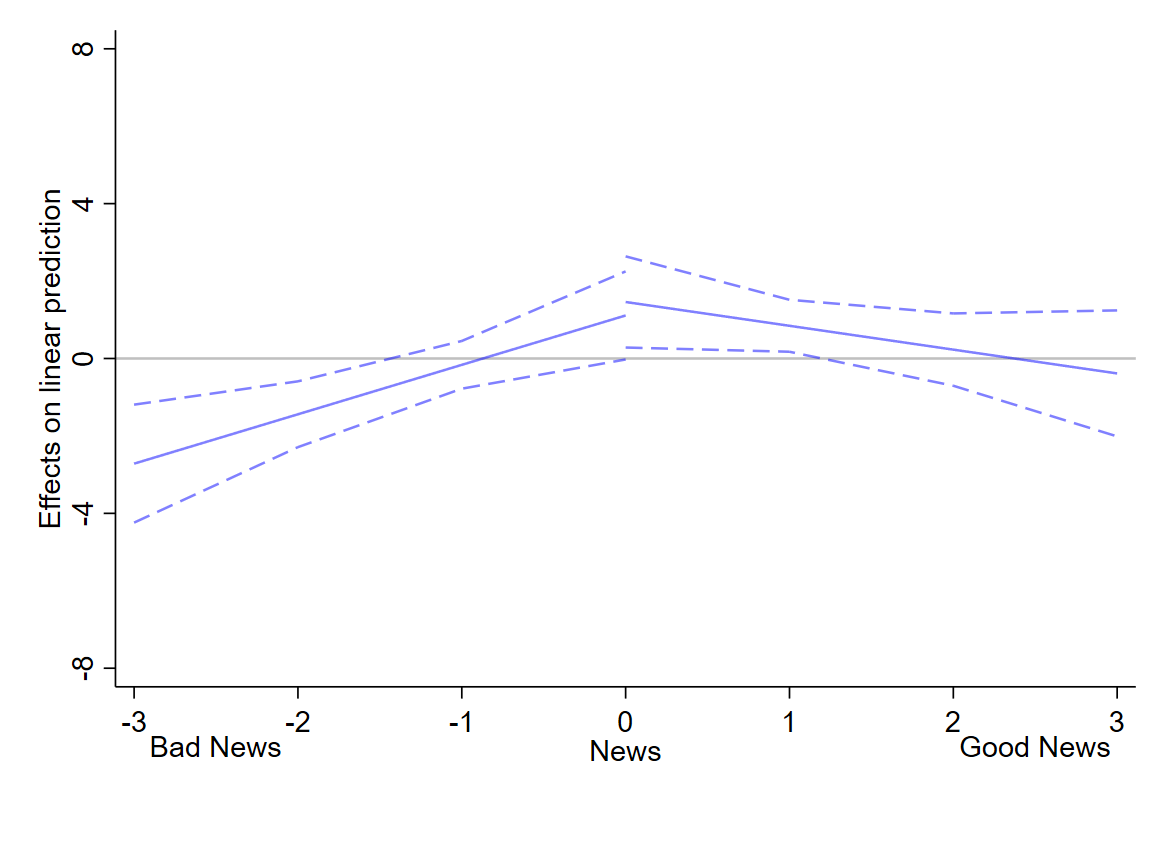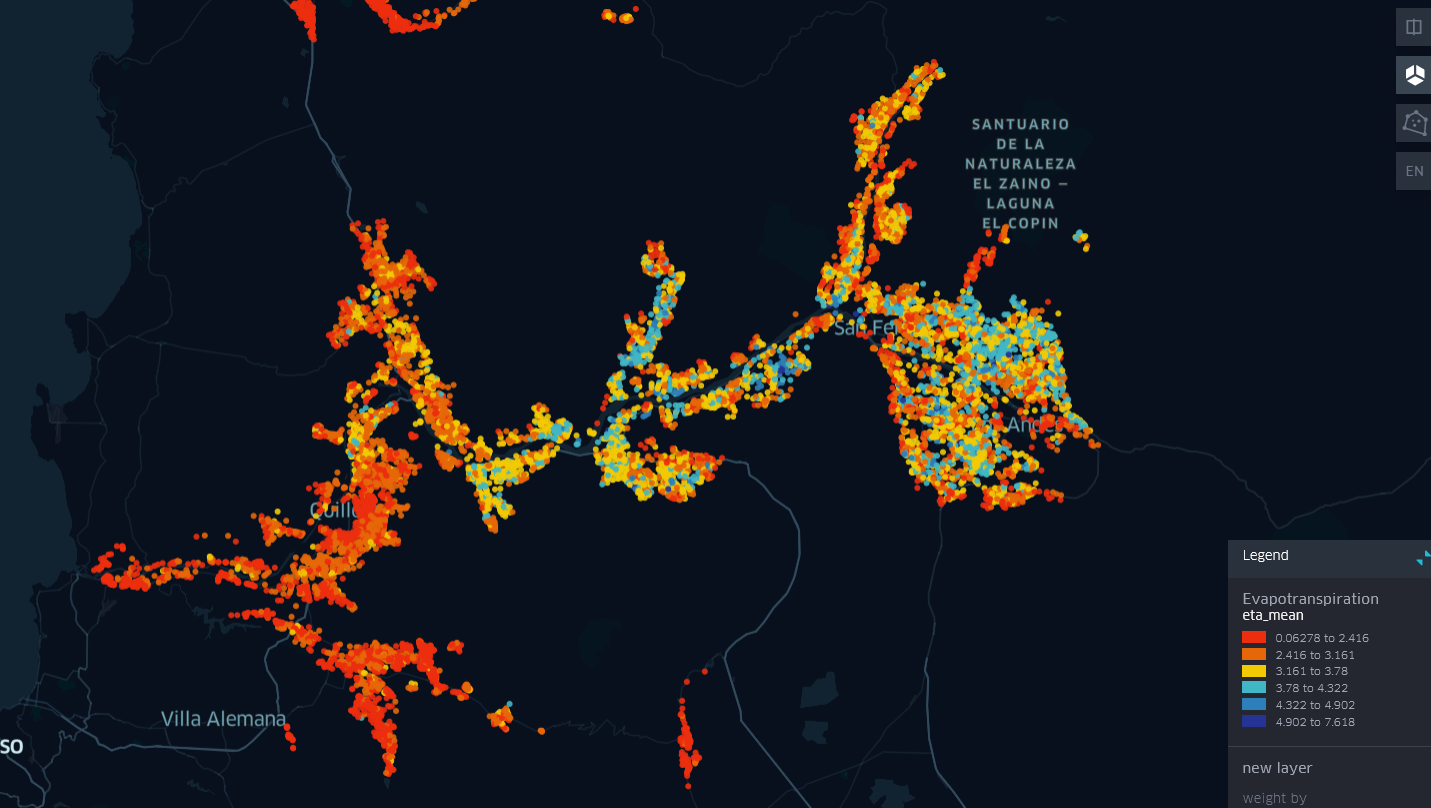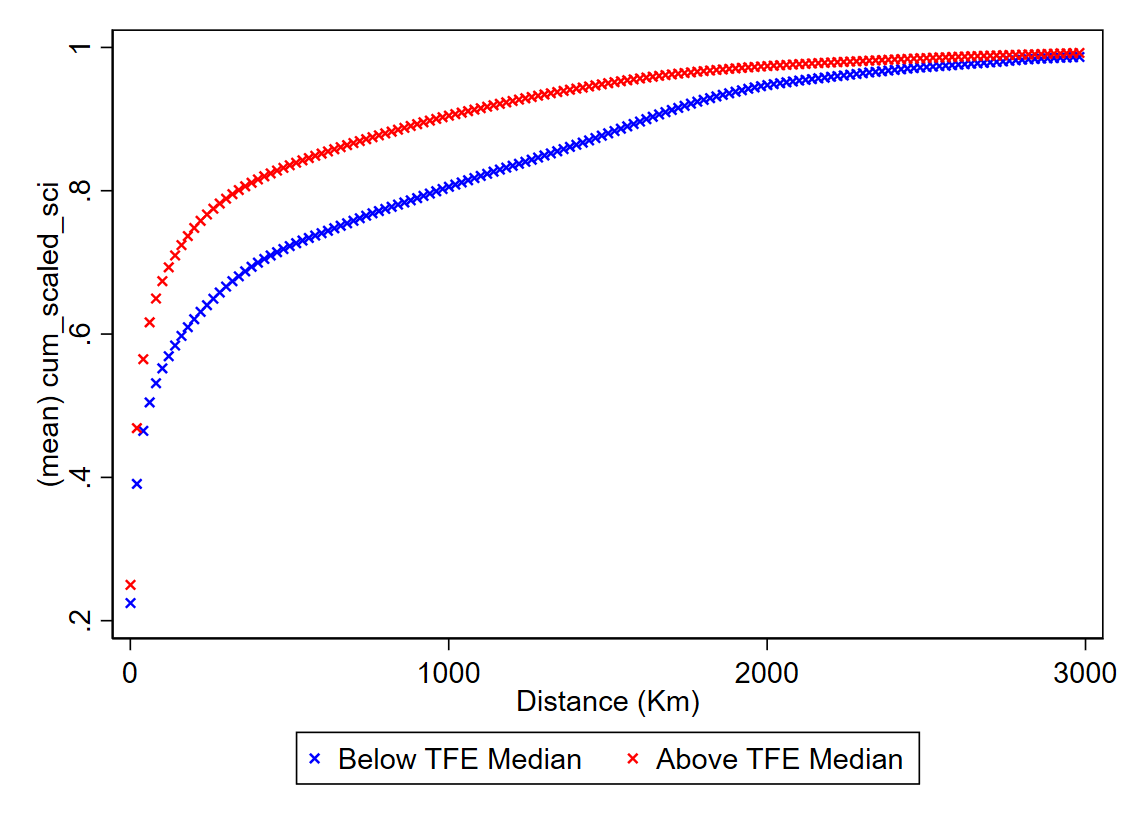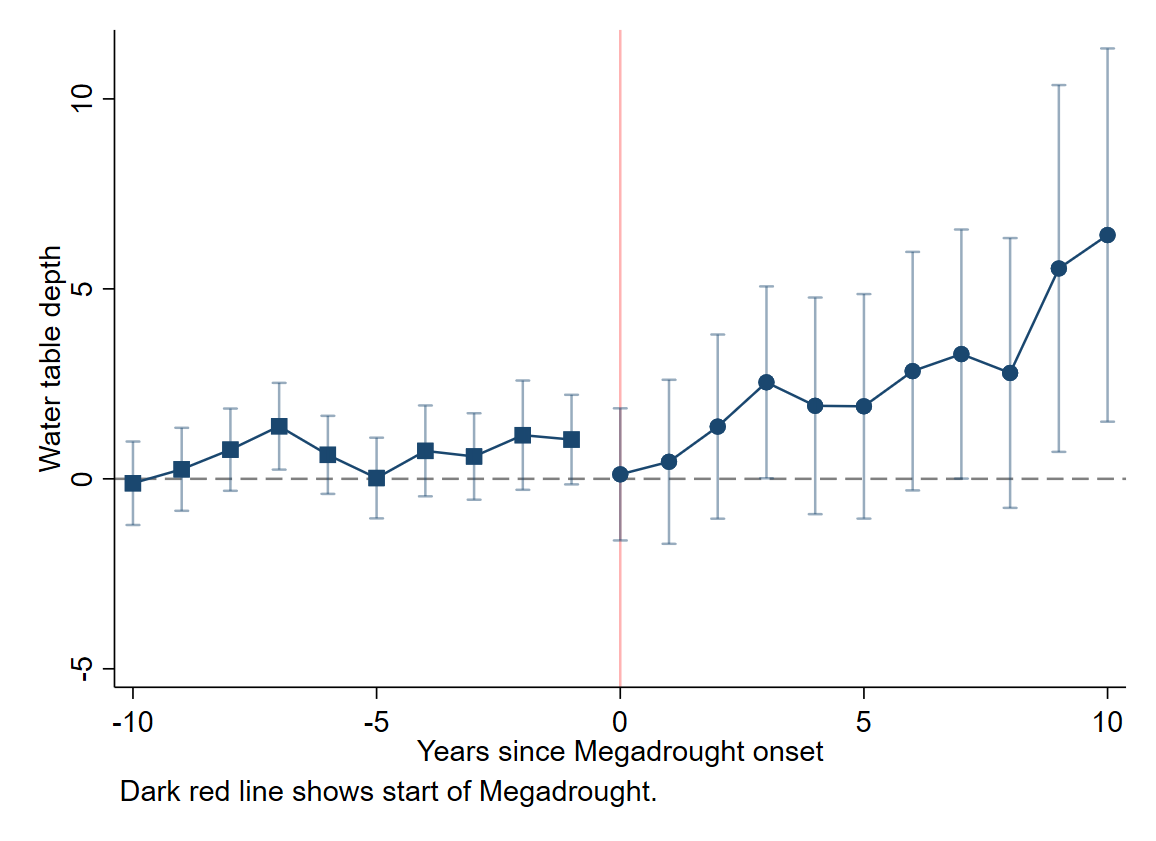Maximiliano Garcia
Postdoctoral Research Associate, Economics
Brown University, USA

Welcome to my website. I am Max Garcia, a Postdoctoral Research Associate at the Brown University Center for Philosophy, Politics, and Economics and an affiliate of the Institute at Brown for Environment and Society (IBES). I am an applied microeconomist, working on Development Economics, Environmental Economics and Political Economy. I received my PhD in Economics from Boston University. Previously, I completed my BA and MA in Economics at the University of Chile. You can check my CV here.
I am on the 2025/26 academic job market and I'm available for interviews.I am currently investigating how institutions mediate farmers' responses to changing climate conditions. Starting from the analysis of the institutions governing water usage and property in Chile, I show the effects of property rights enforcement on the efficiency and distribution of water under water markets. We are expecting an increase in the frequency, length, and intensity of water scarcity events. If you want to know more, please reach out!
Publications
- Punishing Mayors Who Fail the Test: How Do Voters Respond to Information About Educational Outcomes? (with Loreto Cox, Sylvia Eyzaguirre and Francisco Gallego). Journal of Development Economics, 2024.
- Media: (in English) VoxDev, (in Spanish) La Tercera, CEP Chile
-
This paper explores the electoral effects of providing information on the educational outcomes of municipal schools when the mayor is running for reelection. We designed and implemented an experiment in Chile whereby we sent 128,033 letters to voters in 400 randomly selected polling stations. The letters included information on past test scores for local public schools (levels and changes), and either average or maximum outcomes for comparable municipalities. We find that information on educational outcomes affects turnout, which translates almost one to one into votes for the incumbent mayor. Voters respond to educational results in levels and to letters that have average results as a benchmark. The results are concentrated in polling stations with bad educational outcomes, which reduce turnout and thus votes for the incumbent, especially if such outcomes come as news to voters. The results appear to be stronger in contexts where information is scarcer.

Image: people reduces incumbent mayors' support (y-axis) when we reveal they receive bad news regarding their performance (x-axis, left), but do not increase it when we reveal good news.
Working Papers
- Governing Environmental Markets: Evidence From Irrigation In Water Markets. [JMP] (with Jose Belmar; draft updated frequently).
- Presented at: BU, Brown, PSE, Oxford (scheduled), ETH Zurich (scheduled), RIDGE Long Run Growth, RIDGE Environmental Economics, Chilean Economic Society Congress, Econometric Society NASM, NEUDC, EAERE, PERC-Big Sky Workshop, Econometric Society World Congress, OSWEET, and LSE Energy and Environment Week.
-
Water resources present a classic tragedy of the commons that is of increasing relevance due to climate change. This paper provides evidence of how property rights institutions, particularly local irrigators' organizations, impact water markets' efficiency. Our analysis is based on a unique dataset that integrates administrative records, hydrological measures, geographic information, and satellite imagery. We develop a novel misallocation test, which suggests that these organizations reduce misallocation caused by the natural capacity of upstream users to over-extract. Using multiple identification strategies, we show that these efficiency gains are a result of both water redistribution and individual adaptation, as downstream farmers increase their water consumption and agricultural yield, and extend their growing season. Large downstream farmers also adopt more efficient irrigation technologies, and overall gather more benefits from the analyzed property rights institution. Meanwhile, although upstream farmers reduce their water consumption, their productive outcomes remain unchanged. We also document increases in river streamflow during the irrigation season, concentrated in basins with higher agricultural activity. Our results provide micro-evidence of the consequences of effective governance for both allocative efficiency and equity.

Image: our estimates of water consumption at the farm level, for the Aconcagua River basin, water flows from the Andes (right) to the Pacific Ocean (left).
- The Moral Values of "Rugged Individualism". (with Samuel Bazzi and Martin Fiszbein).
- Media: (in Spanish) UPenn's Ceteris Paribus podcast (Spotify, Apple Podcasts)
-
The United States is among the most individualistic societies in the world. However, unlike Western European individualism, which is imbued with moral universalism, America's "rugged individualism" is instead particularistic. We link this distinctive cultural configuration to the country's frontier history. The frontier favored self-reliance, but also rewarded cooperation, which could only be sustained through strong, local group identities. We show that counties with longer frontier history are more particularistic, displaying stronger opposition to federal taxes relative to state taxes, stronger communal values, less charitable giving to distant counties, and fewer online friendships with people in distant counties. At the same time, connections across counties display assortative matching on frontier history, highlighting the important role of culture in bridging disparate areas of the country. Overall, our results shed new light on moral values and the divergence of American and European individualism.

Image: People in more individualistic counties (red crosses) have their friends geographically closer: the same share of friends (y-axis) is in average located at a shorter distance (x-axis).
- Do Stronger Institutions Mitigate the Impacts of Climate Change? Evidence from Water Governance in Chile . (Draft updated frequently)
-
- Presented at: BU, Brown, SWEEEP Workshop at Georgia Tech.
Climate change is expected to increase the frequency and intensity of droughts world- wide, potentially amplifying extant problems of water overuse. This paper exploits intra-country variation in water governance institutions, combined with an unexpected 14-year drought, to examine how institutions shape short- and long-run adaptation to growing water scarcity in irrigated agriculture. I develop a dynamic model of groundwater use with heterogeneous farmers and recurrent droughts to study the evolution of commons dilemmas. The model predicts sharper and more regressive responses to climate shocks in the presence of effective governance. I test these predictions using a unique panel dataset covering more than 200,000 farms over nearly 20 years, supplemented with aquifer data and agricultural censuses. Crucially, some areas historically introduced “water boards” to govern local water usage, while others did not. Empirically, we find that irrigated farms governed by water boards are less vulnerable to drought shocks in the short run. Counties with water boards reduced irrigated area (particularly those of small, lower-income farmers) more than those without as the drought worsened . Finally, we estimate slower aquifer depletion in areas with water boards. Together, these results underscore the importance of strong institutions for enabling sustainable adaptation in the long run, while highlighting the trade-offs they entail in the short term.

Image: Areas governed by water boards deplete their acquifers at a slower rate than areas without them, saving groundwater for a more uncertain future.
- Privatization, Political Competition and Accountability. (Draft coming soon)
The literature has found positive impacts of privatization --i.e. transferring the property of a public company to private ownership-- on various outcomes, including child mortality. I exploit within-country variation in political competition and the staggered privatization of water supply companies to show that privatization has positive impacts (lower child mortality) only in the least competitive counties, while it does not affect outcomes in more competitive areas. I study how the political environment affects the decision to privatize. My results provide a direct comparison of private versus public management, conditional on different levels of political accountability, suggesting that conditional on external oversight, markets and political accountability are substitutes.

Image: The estimated reduction in Child Mortality (x-axis), by quantile of Political Competition (y-axis): Privatization improves child mortality when competition is low, but not when competition is high.
- Institutions, Trade and Crop Choice.
- The Efficiency of Irrigation Subsidies.
Teaching
At Brown University, I am currently teaching an original course, "Climate Change and The Commons", which focuses on the political economy of environmental policy. If you would like to learn more, feel free to send me an email.
At Boston University, I have been a Teaching Fellow of Finance and Environmental Economics at the graduate level, and of Applied Economics, Advanced Macroeconomics, Statistics and Sports Economics.
Previously, at University of Chile, I was a Teaching Fellow and head of TAs of Microeconomic Theory I, Econometrics I and Econometrics II at the graduate school, and of International Trade, Industrial Organization, Economic History, Microeconomic Theory, Econometrics and Public Finance at the college level.
In addition, I also worked as a TF at PUC - Chile (graduate Political Economy), Universidad Adolfo Ibanez (Econometrics), and also teached as an instructor at the J-PAL LAC Executive Course (Introduction to Stata) and San Ignacio High-School (Social Contemporary Issues).
Contact
Email address: max_garcia(at)brown.edu